Number Matching Math Worksheets for Ages 6-7
4 filtered results
-
From - To
Discover the perfect resource to enhance your child's math skills with our Number Matching Math Worksheets for Ages 6-7. These engaging worksheets are designed to help young learners practice and improve their number recognition, counting, and matching abilities. Each worksheet combines fun visuals and interactive exercises to keep kids motivated while building a strong mathematical foundation. Ideal for both classroom and home use, our number matching sheets provide a hands-on approach that reinforces learning through play. Boost your child's confidence in math and watch them excel with our expertly crafted number matching worksheets!
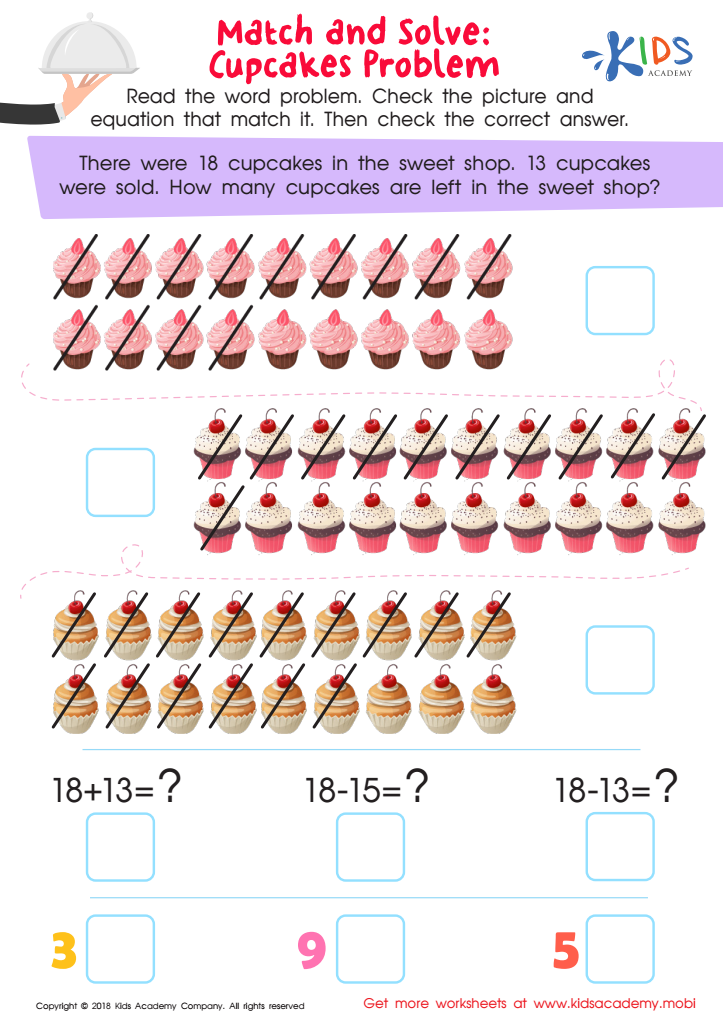

Match and Solve: Cupcakes Problem Worksheet
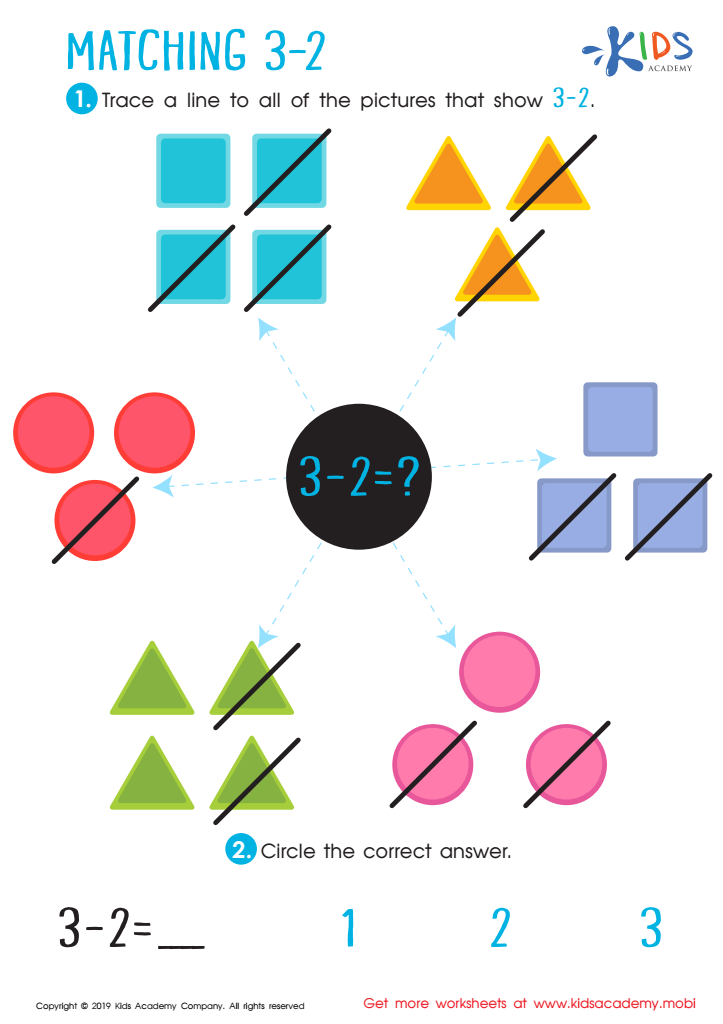

Matching 3-2 Worksheet
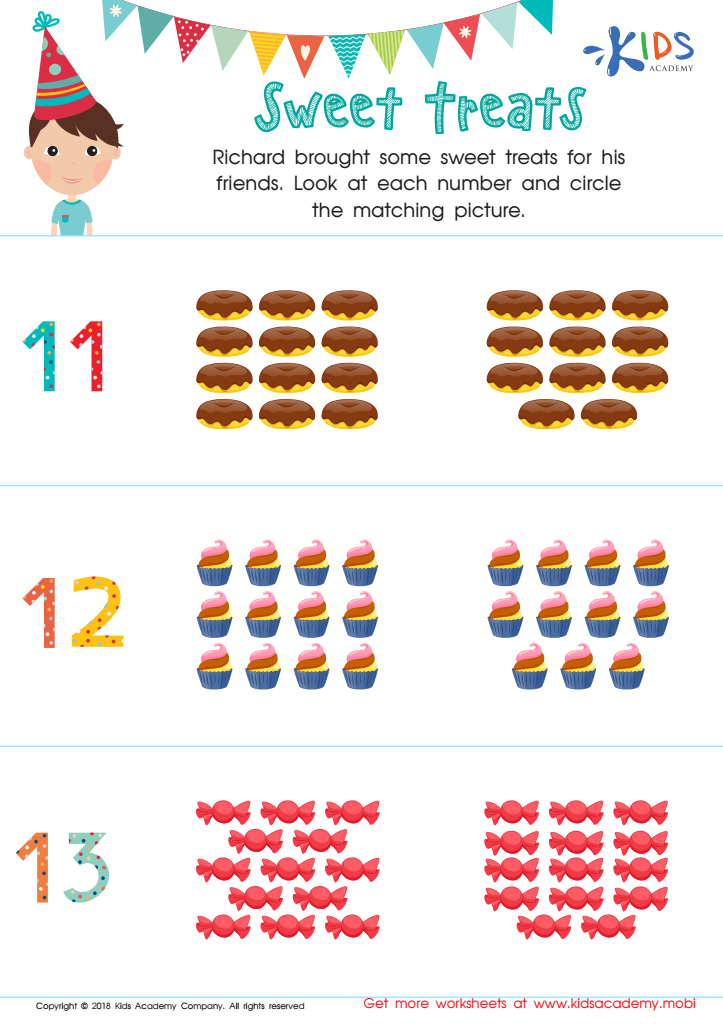

Kindergarten Math Worksheet Matching Numbers
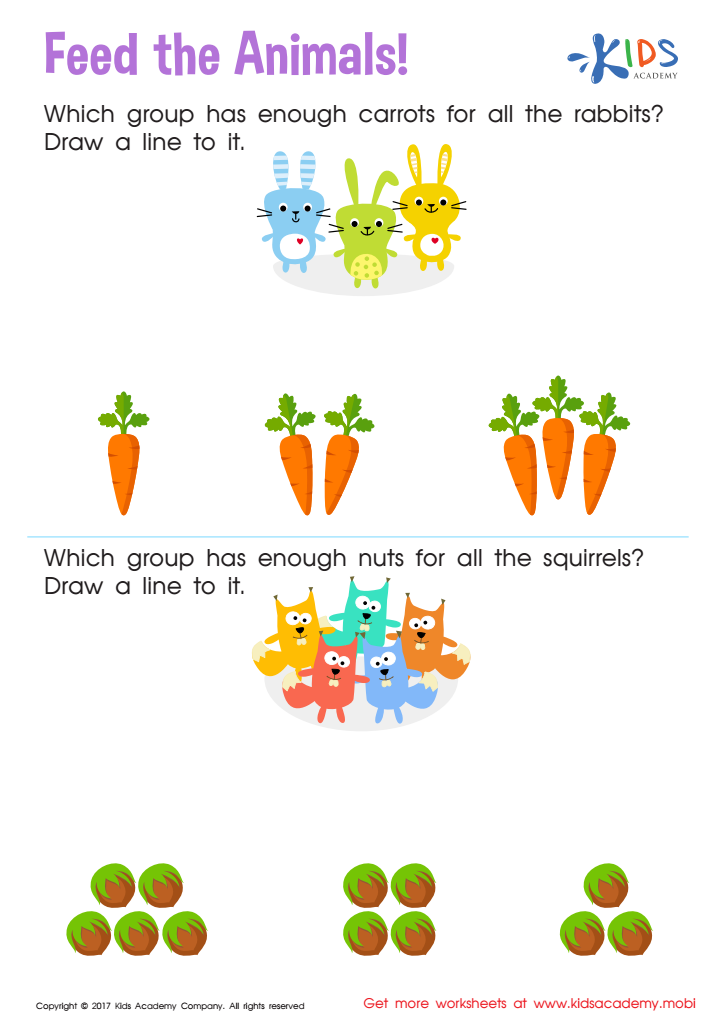

Count and Match: Feed the Animals Worksheet
Parents and teachers should care deeply about number matching math activities for ages 6-7 because these early experiences form the building blocks of numerical understanding and cognitive development in young children. At this age, children are transitioning from recognizing numbers to understanding their relationships and practical applications. Number matching activities help solidify these concepts in a fun and engaging way.
First, number matching reinforces number recognition, which is foundational for all future math learning. It enables children to quickly identify and understand numbers, facilitating their ease in handling more complex concepts later. Second, it promotes the ability to associate numbers with quantities, a critical skill for operations such as addition and subtraction. By visualizing this link through matching games, children can better grasp abstract math concepts.
Moreover, these activities bolster fine motor skills and hand-eye coordination when children are asked to draw lines or move objects to match numbers. Enhanced motor skills are essential for writing and other academic tasks. Number matching also fosters logical thinking and problem-solving abilities, skills transferrable to all areas of learning.
Lastly, these activities often have a collaborative element, allowing children to work together, thereby enhancing social skills and a positive attitude towards teamwork and learning. In a supportive and stimulating environment, number matching turns learning into a fun, interactive experience that sets children up for future academic success.
 Assign to My Students
Assign to My Students





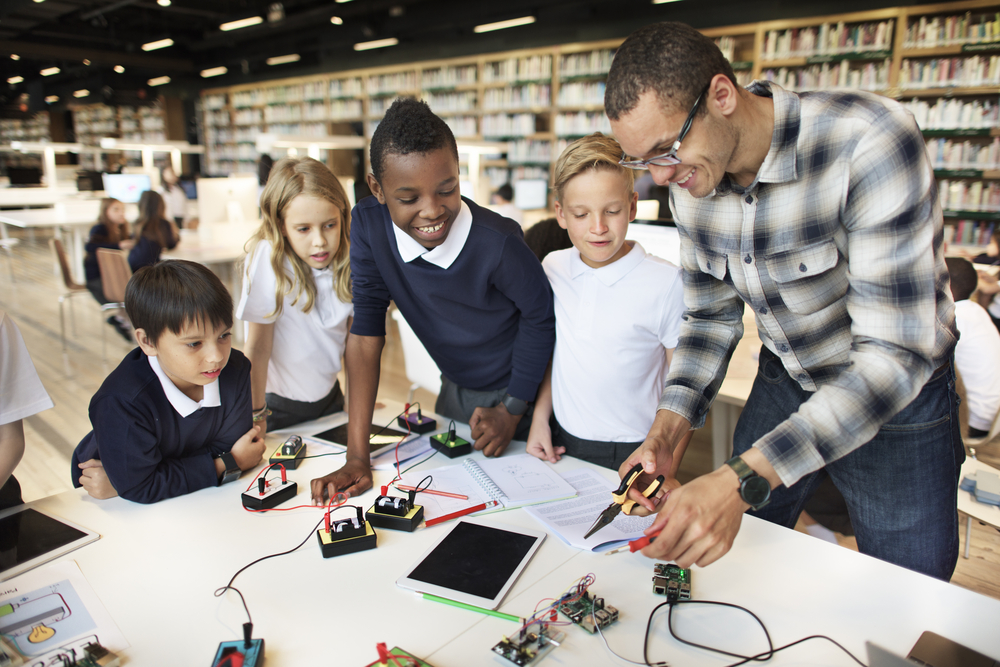


.jpg)










